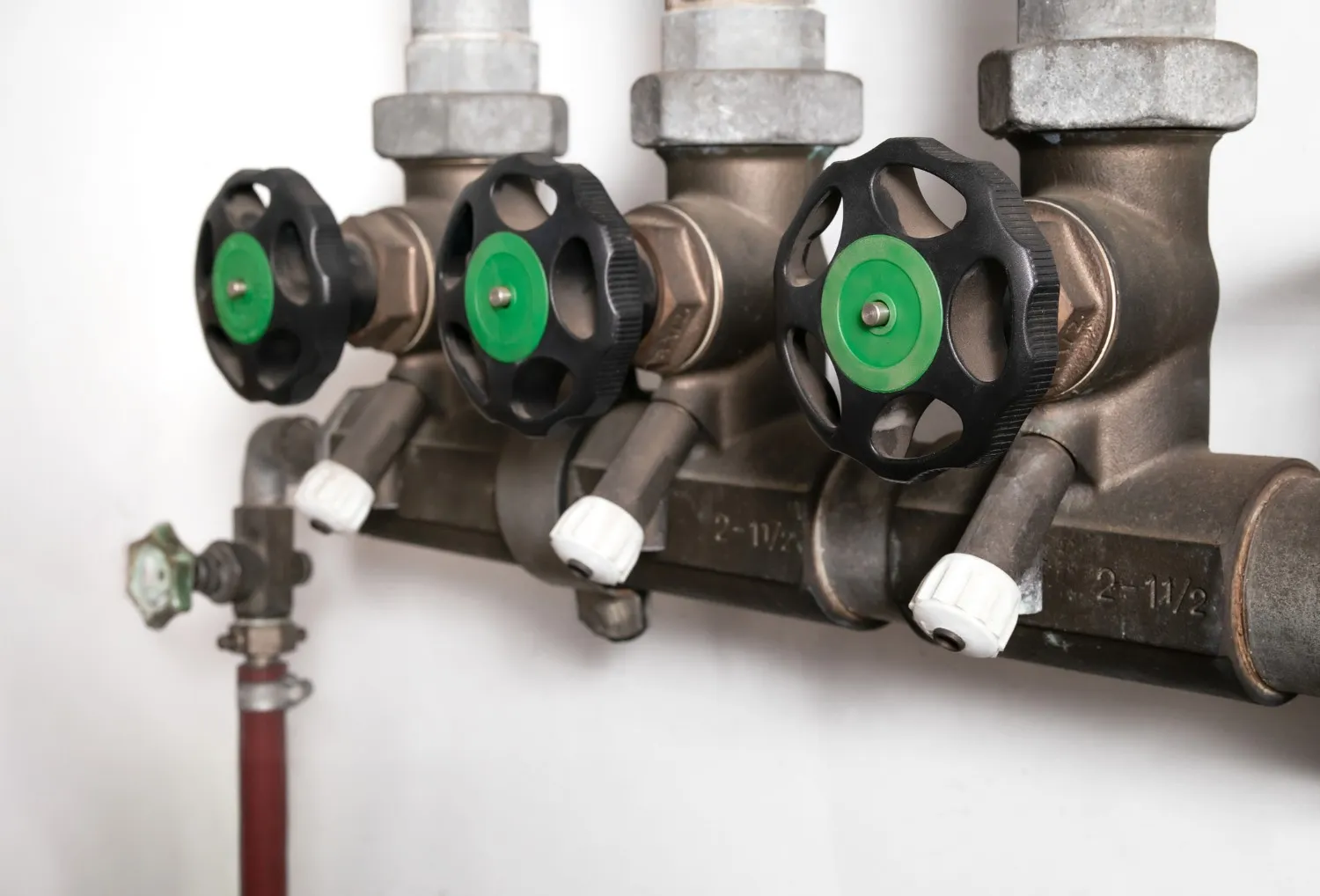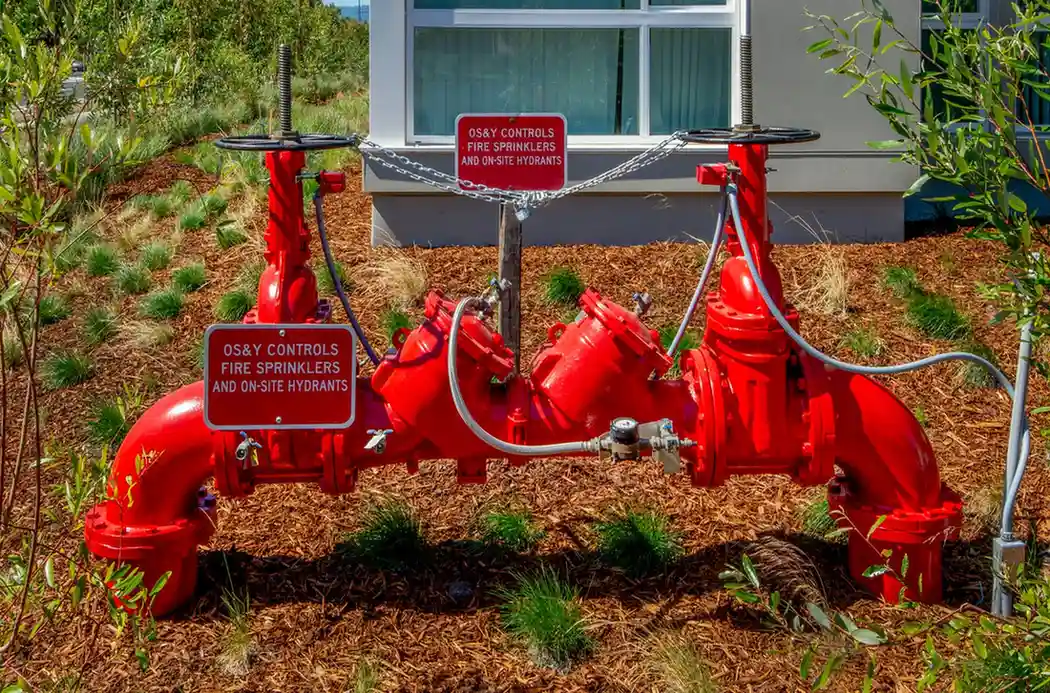Backflow Prevention Services in Langley, VA
Protecting the safety of your drinking water is paramount for every home. One potential threat to your potable water supply is an issue known as backflow. Understanding what backflow is, why it's dangerous, and how to prevent it is the first step in ensuring the health and safety of your household plumbing system. In Langley, VA, homeowners rely on professional plumbing services to install, test, and maintain effective backflow prevention systems.

Understanding Backflow
Backflow is the undesirable reversal of flow of non-potable water or other contaminants into the potable water supply. Normally, water flows in one direction through your plumbing system, from the clean supply line into your home's fixtures and appliances. This flow is maintained by pressure. However, if the pressure in the potable water system drops, or the pressure in a non-potable source increases, water can be drawn or pushed backward into the clean water lines.
There are two primary causes of backflow:
- Backpressure: This occurs when the pressure in the non-potable system is higher than the pressure in the potable system. Common scenarios include pressure increases from pumps, thermal expansion in water heaters, or elevated piping. For example, using a garden hose with a spray nozzle underwater in a bucket while a pump is running nearby could create backpressure.
- Backsiphonage: This happens when there is a sudden drop in pressure in the potable water supply. This pressure drop can create a vacuum that siphons non-potable water from a contaminated source into the clean lines. This can be caused by events like nearby firefighting, a water main break, or even high water demand during peak hours. An example could be a garden hose submerged in contaminated water (like a pool or fertilizer dispenser) when the municipal water pressure drops significantly.

The Dangers of Backflow
The main risk associated with backflow is the contamination of your potable water supply. Water from sources like irrigation systems, swimming pools, sinks, toilets, or even industrial processes can carry harmful bacteria, chemicals, fertilizers, or other pollutants. If this contaminated water enters your drinking water lines, it can pose serious health risks to anyone who consumes or uses the water. Symptoms of exposure to contaminated water can range from mild digestive issues to severe illnesses.
Beyond health concerns, backflow can also cause damage to your plumbing system and potentially lead to costly repairs. Protecting your water supply isn't just about health; it's also about maintaining the integrity of your home's plumbing infrastructure.
The Role of Backflow Prevention Devices
Backflow prevention devices are specially designed valves and assemblies installed in your plumbing system to prevent the reversal of water flow. Their purpose is to create a barrier between the potable water supply and any potential sources of contamination. By installing these devices at crucial points in your system, you can effectively isolate potential hazards and protect your drinking water.
Not all backflow prevention devices are the same. The type of device needed depends on the degree of hazard associated with the potential contamination source. Plumbing codes typically specify which types of devices are required for different applications.
Common Types of Backflow Prevention Devices
Residential properties in Langley, VA, often utilize several types of backflow prevention devices, depending on the application:
- Hose Bib Vacuum Breakers: These small, inexpensive devices attach directly to outdoor spigots (hose bibs). They are designed to prevent backsiphonage when a hose is connected and submerged in contaminated water. They are a basic level of protection but essential for outdoor water use.
- Atmospheric Vacuum Breakers (AVB): Similar to hose bib vacuum breakers, AVBs are used to prevent backsiphonage. They are typically installed downstream of the last valve on a line and must be installed at a certain height above the potential source of contamination. They are suitable for low-hazard applications like irrigation systems.
- Pressure Vacuum Breakers (PVB): PVBs provide protection against both backsiphonage and low levels of backpressure. They include a check valve and an atmospheric vent. PVBs are commonly used for irrigation systems and other moderate hazard applications. Like AVBs, they must be installed above the highest point of the downstream piping.
- Double Check Valve Assembly (DCVA): A DCVA consists of two independently operating check valves installed in series, along with test cocks. This assembly is suitable for protecting against backpressure and backsiphonage from moderate hazard sources. DCVAs are often used on main water lines or for connections to fire sprinkler systems.
- Reduced Pressure Principle Assembly (RP or RPZ): This is considered one of the most reliable backflow prevention devices and is used for high-hazard applications, where the potential contaminant poses a severe health risk. An RP assembly has two check valves, a hydraulically operating differential pressure relief valve located between them, and test cocks. The relief valve opens to vent water if the pressure between the two check valves drops to a level that could indicate a backflow condition. RPZs are commonly required for connections to boilers, chemical dispensers, or certain commercial applications, and sometimes for residential connections that pose a significant risk.
Selecting the appropriate device for each potential cross-connection point in your home is critical. A qualified plumber understands the various types of devices and the specific requirements based on local codes and the nature of the potential hazard.
Backflow Testing and Certification Requirements
In many jurisdictions, including parts of Northern Virginia, regulations require annual testing of certain types of backflow prevention devices, particularly PVBs, DCVAs, and RPs. This testing is crucial because these mechanical devices can fail over time due to wear and tear, corrosion, or improper installation.
Annual testing ensures that the device is functioning correctly and providing the necessary protection. The tests must be performed by a certified backflow assembly tester using calibrated equipment. After a successful test, the results are typically submitted to the local water authority to certify compliance. If a device fails testing, it must be repaired or replaced promptly to maintain the integrity of the water supply protection.
Ignoring testing requirements can lead to significant risks to public health and may result in fines or disconnection of water service by the local municipality. A professional plumbing service can handle all aspects of your backflow testing and certification needs in Langley, VA.
Backflow Prevention Installation and Repair Services
Installing a backflow prevention device is not a DIY project. Proper installation requires a thorough understanding of plumbing systems, water pressure dynamics, and local plumbing codes. Incorrect installation can render the device ineffective or even create new problems within your plumbing.
Qualified plumbers can assess your property to identify potential cross-connection points and recommend the appropriate type of backflow prevention device for each location. They ensure that the installation meets all local regulations and industry standards.
Similarly, if a backflow prevention device fails its annual test or shows signs of malfunction (like leaking from the relief valve on an RPZ), prompt repair or replacement is necessary. Repairing these complex assemblies requires specialized knowledge and tools. Attempting repairs without proper training can cause further damage or compromise the device's effectiveness.
A professional plumbing service offers comprehensive backflow prevention services, including:
- Site assessment to identify potential cross-connections.
- Recommendation and installation of appropriate backflow prevention devices.
- Annual backflow testing and certification by certified testers.
- Repair services for malfunctioning backflow preventers.
- Replacement of outdated or irreparable devices.
- Consultation on local backflow prevention regulations in Langley, VA.
Ensuring your backflow prevention systems are properly installed and regularly tested is an essential part of responsible homeownership and water safety. Partnering with experienced local plumbers guarantees that your potable water remains clean and safe for everyone. Maintaining your plumbing system proactively, including backflow prevention, can help avoid unexpected issues. For instance, addressing issues like potential Pipe Leak Repair or ensuring your Water Treatment systems are functioning properly are all part of maintaining a healthy water system within your home. While a backflow issue might not always be an Emergency Plumber situation, it's a critical health and safety concern that requires timely professional attention. A comprehensive approach to your Plumbing Service needs includes addressing potential backflow hazards.
Trusted Brands.
We partner with industry-leading manufacturers to ensure your plumbing system runs on durable, high-quality parts built to last.


















Customer Testimonials
Cherry Blossom Plumbing has consistently provided top-notch service, ensuring every issue is resolved efficiently and professionally.

Service Areas
Proudly serving Arlington and the surrounding Virginia communities with fast, reliable plumbing solutions you can count on.




